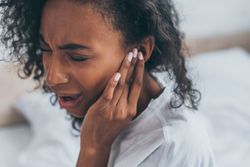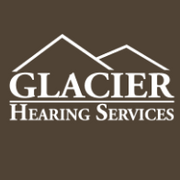What to Know About Dealing With Ear Pain

Earaches and ear pain can affect people of all ages. Whether you’re experiencing pain in one or both ears, you should know how to react to it. Know the common causes and symptoms of ear pain, as well as how to address it with your ear, nose, and throat doctor.
A Guide to Ear Pain
Common Causes & Their Symptoms
Temporary pain can occur from sudden changes in air pressure. You may experience this dull pain when ascending or descending in a plane, for example. While uncomfortable, this pain will usually go away on its own. You can chew gum or drink some water to help your ears adjust to the pressure.
 More persistent pain is often a side effect of a cold, allergies, or a sinus infection. These illnesses block the tubes in your middle ear. Fluid will then build up there, creating painful pressure. The fluid may get infected. Ear, nose, and throat doctors refer to this condition as otitis media. If the middle ear is infected and isn’t properly treated, you may experience hearing loss. If you also have a bad sore throat, the infection may be from tonsillitis or pharyngitis.
More persistent pain is often a side effect of a cold, allergies, or a sinus infection. These illnesses block the tubes in your middle ear. Fluid will then build up there, creating painful pressure. The fluid may get infected. Ear, nose, and throat doctors refer to this condition as otitis media. If the middle ear is infected and isn’t properly treated, you may experience hearing loss. If you also have a bad sore throat, the infection may be from tonsillitis or pharyngitis.
More intense pain with clear or bloody fluid coming out of the ear means you may have a ruptured eardrum. The sharp pain may be accompanied by temporary or permanent hearing loss. This can be caused by a head or neck injury, a severe change in water or air pressure, or an inner ear infection.
How to Prevent & Treat It
Prevent common ear pain by avoiding things that irritate your sinuses. This means avoiding allergens like dust, pollen, or cigarette smoke. If you’re in an area with high environmental noise — such as concert venues or construction sites — wear earplugs or noise-canceling headphones.
If you believe your ear pain is caused by an infection, then your ear, nose, and throat doctor can prescribe you some antibiotics. You can also use over-the-counter eardrops to help with the pain and loosen earwax. Don’t use drops if you suspect your eardrum may have burst; this will allow the liquid to go into your inner ear, which is harmful. If the pain doesn’t go away on its own within one day, you should always see a doctor.
Glacier Ear Nose & Throat and Glacier Hearing Service diagnoses and treats ear pain in Kalispell, MT. This ear, nose, and throat doctor has been in the Flathead Valley community for more than 30 years. Learn more about their audiology services on their website and call (406) 752-8330 to schedule an appointment.
About the Business
Have a question? Ask the experts!
Send your question

